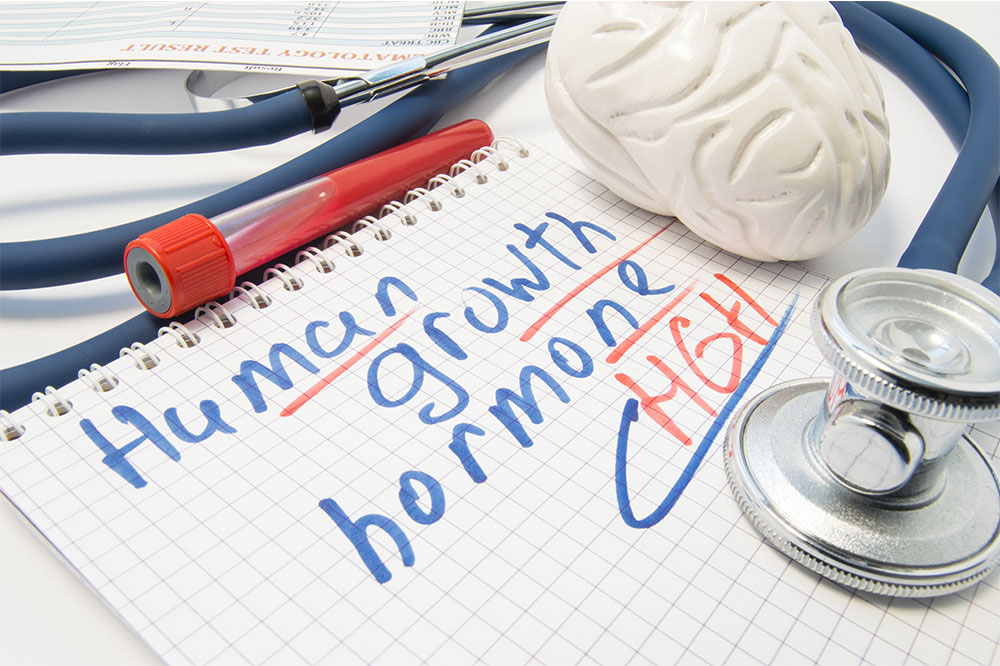4 things to know about human growth hormone therapy
The pituitary gland is considered to be the most vital hormone-secreting gland. The pea-sized gland located at the base of the brain generates the growth hormone, which is responsible for an individual’s overall growth and development. The gland’s ability to release this hormone goes down with age. Scientists have developed synthetic human growth hormone to counter this natural slowdown or a lack of the hormone in children. Here’s what you need to know about the symptoms of growth hormone deficiency and human growth hormone therapy.
Symptoms of growth hormone deficiency
It’s crucial to understand that growth hormone is essential for physical growth and also plays a vital role in various other processes in the body, including bone density, muscle mass, and mood.

- Looking much younger than their peers
- Having a chubby body build
- Delayed puberty
- Short stature
- Problems with hair growth
Children with insufficient growth hormone levels may also be smaller at birth, but this symptom may not be observed in every case. Problems with growth may often become visible after a few years.
In adults, a lack of growth hormone is often linked to pituitary gland damage due to radiation therapy, head injury, or infections like meningitis.
- Anxiety and depression
- Increased body fat, especially in the abdominal area
- Frail bones and muscles
- A weak heart
- A higher risk of heart disease and stroke
- Being tired
- An inability to think clearly
Potential benefits of human growth hormone therapy
The growth hormone plays a vital role in several bodily functions. Administering synthetic human growth hormone can provide a range of benefits to people with low natural hormone levels. These include:
- Boosting growth and development in children
- Enhancing one’s ability to exercise and lead an active lifestyle
- Improving mood, memory, productivity, concentration, and sleeping habits
- Aiding gain of muscle mass while slowing down its deterioration due to aging
- Promoting collagen production for better skin health
- Speeding up bone regeneration and healing
- Lowering the risk of cardiovascular diseases
- Helping people with conditions like Prader-Willi syndrome, Turner’s syndrome, and short bowel syndrome
- Aiding the treatment of body deterioration due to HIV or AIDs
It’s important to keep in mind that studies on synthetic growth hormone are limited, so it’s advisable to consult a doctor before starting treatment.
Human growth hormone therapy – What is it and how it works
Human growth hormone therapy is aimed at restoring energy, boosting metabolism, and promoting proper physical development. Additionally, it can help reduce total body fat, especially around the belly.
Lab-developed human growth hormone injection is the most common form of therapy. These injections are designed to mimic the behavior of the growth hormones naturally produced by the pituitary gland. Depending on the severity of the deficiency, these injections must be taken multiple times a week or daily. Doctors often recommend human growth hormone therapy for several years.
These injections can be self-administered, but patients may need to go for a checkup every month or so. During these checkups, doctors will examine how the synthetic growth hormones are behaving in an individual’s body and may also carry out some blood tests to determine whether the doses need to be adjusted or stopped. Additionally, doctors may check one’s cholesterol levels, blood sugar levels, and bone density.
Early treatment increases children’s chances of growing to normal adult height. Children can gain up to 4 inches of height or even more in the first 3 years of therapy.
Side effects and risks of human growth hormone therapy
As with any other treatment, there are risks and side effects associated with human hormone growth therapy. These include:
- Carpal tunnel syndrome
- Edema or swelling due to fluid retention
- High cholesterol levels
- Nerve, muscle, or joint pain
- Low blood sugar
- A higher risk of heart disease and diabetes
- Numbness and tingling sensation in the skin
- An enlarged heart
- Gynecomastia or enlarged breasts in men
- Growth of cancerous tumors
- Mood changes, dependency, and withdrawal
- Liver damage
- Fatigue
People who experience one or more of these side effects should talk to their doctor at the earliest. Some of the side effects are linked to high levels of human growth hormone, so the doctor may adjust the dosage. That said, adjusting doses may only lower the severity of the side effects and may not always eliminate them. Some studies suggest that long-term use of these injections can lead to acromegaly, a condition characterized by the overgrowth of bones in the hands, feet, and face.
Human growth hormone therapy is not recommended for people with:
- Tumors
- Cancer
- Complications due to open heart or abdominal surgery
- Serious illnesses
- Severe breathing issues
- Multiple injuries
The injection can change how the body uses insulin, so people with diabetes should monitor their blood sugar levels.

